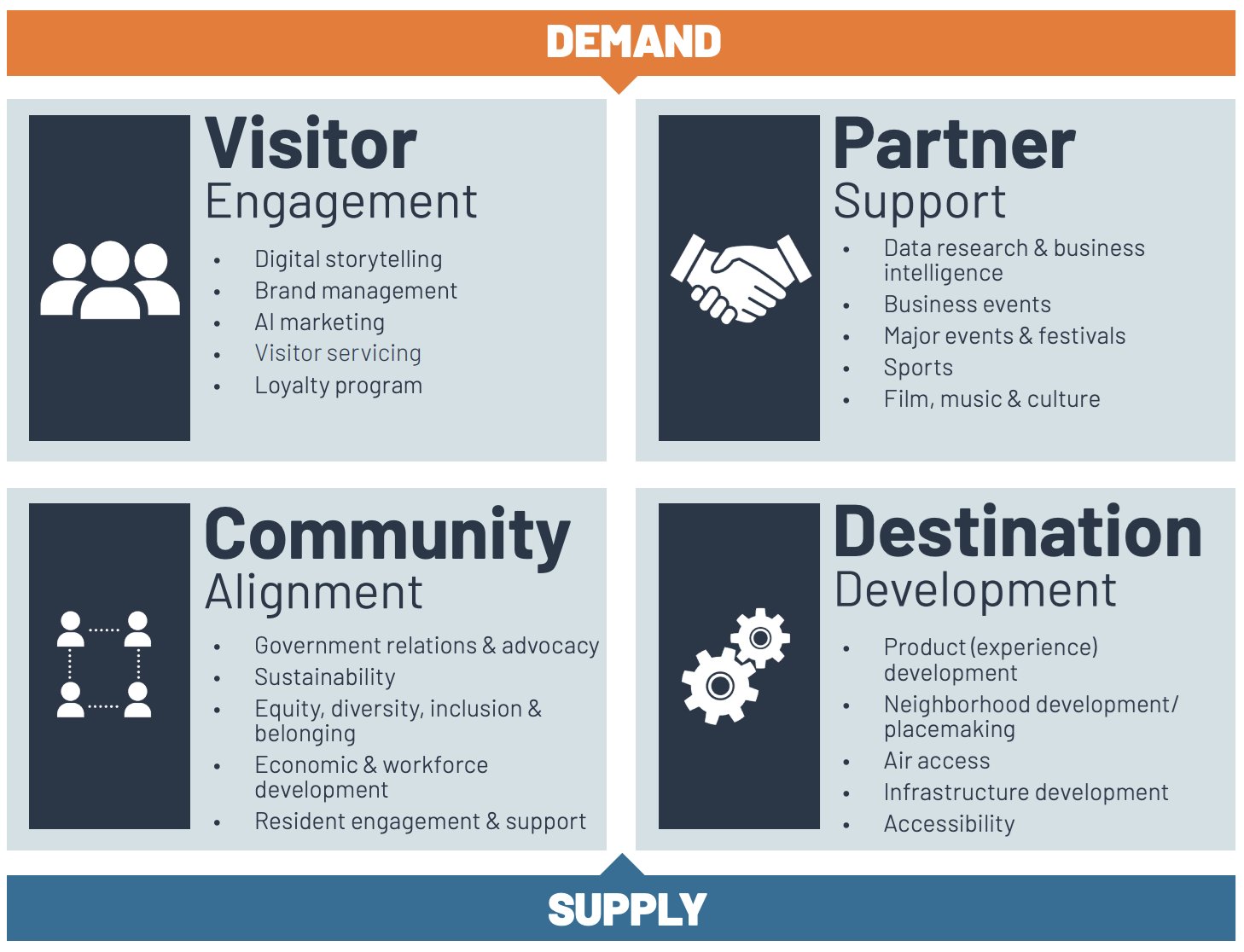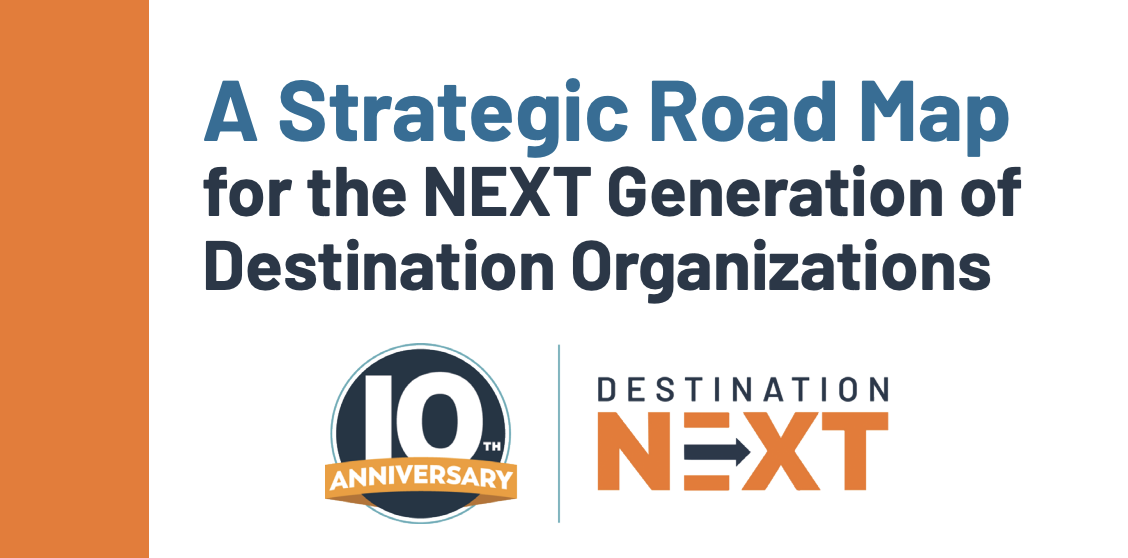
It is essential to approach the acceleration of the future with thoughtful consideration, ensuring that we harness these advancements responsibly and use them to address the complex challenges facing our organizations.
Every two years, Destinations International, as the world’s largest membership entity and resource for official destination organizations and convention and visitors bureaus (CVBs), looks into the future and releases the DestinationNEXT (DNEXT) Futures Study. It is the largest and most extensive survey of destination organizations around the world. Which begs the question, why do we try and look into the future?

Our producing a futures study allows us to anticipate potential future risks and challenges, thus enabling us to prepare for or even prevent them. For example, studying changes in technology platforms allows us to shift our content and marketing to incorporate these new technologies and information channels. Studying future scenarios for climate change can inform policies to reduce greenhouse gas emissions produced by conventions, tradeshows, and special events.
A future study also helps us when engaging in strategic planning by providing possible future scenarios. This knowledge can guide investment, policymaking, marketing and communications and sales and operational strategies. By identifying potential future trends, the DNEXT Future Study can stimulate innovation, as organizations can identify new opportunities for products or services.

Specifically for destination organizations, reading and understanding the DNEXT Futures Study is equally important for making better, more informed decisions by understanding the possible futures that could emerge. It can help us to better understand the complexity of global trends and the interconnectedness of systems. This can foster a broader perspective and deeper understanding of the world. And it helps prepare individuals and organizations to adapt to change by giving them a head start in understanding what those changes might look like.
Simply put, the DNEXT Futures Study plays a crucial role in preparing us for what's to come and allows us to shape our futures more effectively.
This leads us to the second question, why do we do the report every two years?
The DNext Futures Study is not an easy or inexpensive task. It is two months in design and six months in execution. In the end it involves a board of advisors, four panels of experts and the involvement of over 800 destination leaders from 62 countries. And even with pro bono assistance it is still a report with a six-figure cost.

At Destinations International, we subscribe to the concept that the future is speeding up. This refers to the perception that the pace of change and progress in various aspects of life is accelerating over time - technological advancements and the rapid evolution of society, culture, and economy. Here are just a few examples of what we are talking about.
Technological innovation has been one of the primary drivers of this accelerated pace. With breakthroughs in fields such as artificial intelligence, biotechnology, information technology, and automation, the rate at which new technologies are being developed and integrated into everyday life has increased significantly. Furthermore, the widespread availability of the internet and the increasing ease of access to information have made knowledge dissemination faster and more efficient. People can now communicate instantaneously across the globe, allowing ideas and trends to spread rapidly.
On the global front, the interconnectedness of economies and societies worldwide has created a more dynamic and fast-paced environment. Globalization has led to the rapid exchange of goods, services, and ideas, which further amplifies the perception of the future moving at a faster pace. In many industries, the time it takes for products to become obsolete or outdated has decreased significantly. The same can be said of the shelf life of content and marketing materials.
Something we have talked a lot about is that social and cultural norms are evolving more rapidly, especially with the rise of social media and online platforms. Cultural shifts and movements that once took decades now seem to happen in a matter of years or even months. There is also the expectation by people. With the increasing convenience and efficiency of modern life, people have become accustomed to quick results and instant gratification. This expectation of speed applies to various aspects of life, from communication to problem-solving and decision-making.

While the perception of the future speeding up may have positive aspects, such as improved access to information and technological breakthroughs, it can also create challenges. The rapid pace of change can lead to uncertainty and anxiety as individuals and societies struggle to adapt to new circumstances and keep up with the latest developments. Additionally, there are concerns about the ethical implications of some technological advancements, as well as the potential for increased inequality and job displacement. This is one of the reasons we have underscored the need for a destination organization to be a shared value within its community.

It is essential to approach the acceleration of the future with thoughtful consideration, ensuring that we harness these advancements responsibly and use them to address the complex challenges facing our organizations. With that in mind, Destinations International is proud to offer up the 2023 edition of the Destination Next Futures Study. We urge you to read and re-read this report. To share it with your whole organization and community stakeholders. We hope that as we said at the beginning of this post, it helps you anticipate potential future risks and challenges, thus enabling you to prepare for or even prevent them.


